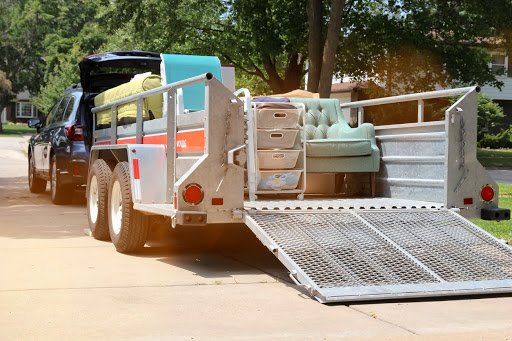
As a property manager, you carefully consider all of the potential tenants before signing a lease; you interview applicants, contact references, and screen financial qualifications. Unfortunately, when it comes to your tenants’ guests, renters don’t have the same level of oversight. This is why it’s important to establish rules and document a formal policy to answer the important question, “when does a guest become a tenant?”.
A tenant is typically considered to be the person or group of people, over the age of 18, who signed a lease agreement to reside on your property. These individuals are expected to comply with state laws, landlord-tenant agreements, and any other particulars outlined in the lease. However, in actuality, anyone paying to live in the residence can be considered a tenant, even if their name is not listed on the lease.
By standard definition, a guest is someone who visits occasionally, maybe stays for a few nights, but is not expected to pay rent in exchange for their stay. If a guest has agreed to stay in a spare bedroom, or even crash on the couch, for a period of time in exchange for rent, then that person is considered a tenant and liable for eviction.
In some circumstances, it can be difficult to determine when a guest has crossed the threshold into being a tenant. As previously mentioned, guests do not pay rent in exchange for their stay – but that isn’t the only proof of occupancy. While there may be a bit of gray area, there are many indicators to watch for if you’re suspicious of a long-term guest.
If a guest regularly spends the night in the residence and parks their car on the rental property, it’s reasonable to assume they are no longer a temporary visitor. Utilize security footage to document the frequency of occurrences. If security footage isn’t available, monitor assigned parking spots for unauthorized cars parked overnight multiple times that don’t match the vehicle description and plate numbers documented in the lease.
The phrase “make yourself at home” only goes so far. Therefore, one clear hint that a guest has taken up residence is when they move their furniture and other belongings into the unit. Moving and storing a large number of personal possessions in one place indicates that the occupant considers that place to be home.
Guests do not consistently receive letters, packages, or magazine subscriptions to a temporary dwelling. A mailing address can be used as residency documentation at the state Department of Motor Vehicles, colleges or universities, and many other institutions. Even if the unauthorized guest rotates between multiple places for overnight lodging, receiving mail is legal evidence of occupancy.

Any adult occupant of a rental property should have legal accountability to the lease agreement, and therefore be subject to eviction for violations. As a renter or property manager, if you don’t have a documented guest policy, you could be liable for any damage caused by an unauthorized guest. It’s important to enact a ‘use of premises’ clause in every lease agreement explaining the difference between tenants and guests.
Prohibiting excess occupancy is an easy way to initially prevent unauthorized residents. Every unit in your rental property should have a tenant maximum based on size, floor plan, etc. Generally, there are local laws in place that dictate how many people can live in a rental space based on square footage; beyond that, landlords can establish their own parameters for the property.
As an owner or landlord, you determine which individuals can stay on the property as a guest. For example, family members and friends are typically welcome; however, au pairs or elderly parents of the original tenant planning to stay long-term may require authorization.
In addition to setting standards for friends and family, it’s important to consider whether vacation rentals are allowed in the property. Websites like Airbnb and Homeaway have made the idea of vacation rentals commonplace. Property owners should document their stance on this topic in every lease agreement to avoid future issues.
A crucial step in creating any guest policy is establishing the length of time a house guest can stay without landlord authorization. This time frame can be anywhere from 5 days to 45 days in a six-month period, you just need to determine the length of time you’re comfortable with. From there, landlords can establish the maximum amount of time a guest can stay before the original tenants are in violation of their lease and risk eviction.
Property managers and landlords should never enter a verbal agreement to accept rent from a guest whose stay hasn’t been documented on the lease. This arrangement is known as a ‘landlord-tenant agreement’, which basically means you have all the liability with none of the documented protection. If a legal battle rises from this situation, they will be the “legal tenant” because you accepted rent in exchange for their stay. Rent payments aren’t limited to monetary remittance. Rent can also be non-monetary currency such as service labor or physical gifts.
There are only a few lawful reasons that prompt landlords to evict tenants – failure to pay rent, health and safety risks, or lease violation. According to landlord-tenant law, acceptance of rent in any form from an occupant grants them “tenant rights” and forfeits the renter’s right to enforce the original rental agreements because a payment was accepted.The landlord-tenant relationship can be difficult to navigate, but Nomadic Real Estate has helped thousands of property owners achieve peace of mind throughout Washington D.C. and surrounding areas. Professionals at Nomadic provide assistance and consultation on residential real estate endeavors. Contact us today to receive expert help with leasing, property management, sales, and other residential rental questions.